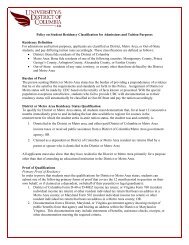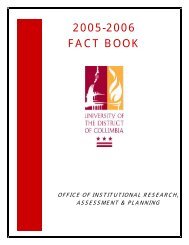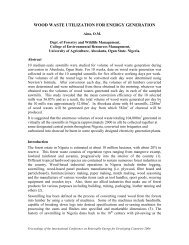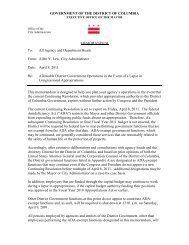Cocos Nucifera: An Abundant Renewable Source of Energy
Cocos Nucifera: An Abundant Renewable Source of Energy
Cocos Nucifera: An Abundant Renewable Source of Energy
Create successful ePaper yourself
Turn your PDF publications into a flip-book with our unique Google optimized e-Paper software.
spontaneous combustion. Again, coconut oil is the highest <strong>of</strong> the vegetable oils. Finally, the<br />
melting point is important as the fuel needs to be liquid to be processed by the fuel pump and<br />
fuel injection system. A low melting point is obviously the best, and it is only here that coconut<br />
oil is deficient. As previously noted, it is anticipated that this can be overcome by preheating the<br />
coconut oil or by converting it into bio-diesel, which lowers the melting temperature to -9 o C. In<br />
summary, coconut oil seems to be superior to other vegetable oils in its yield and its physical<br />
properties for use in diesel engine generation <strong>of</strong> electricity.<br />
What Advantages does Coconut Oil Offer Over Diesel Fuel in Rural Villages?<br />
The information provided above gives a price point for coconut oil that is similar to the price <strong>of</strong><br />
conventional diesel oil in some rural villages such as on the island <strong>of</strong> KarKar in Papua New<br />
Guinea. 4 What advantage would their be to setting up the necessary facilities to extract coconut<br />
oil from coconuts when one can purchase petroleum based bio-diesel at a similar price? First, the<br />
electrification <strong>of</strong> a village using coconut oil should be sustainable long-term as the natural<br />
resources, namely coconuts, are readily available and renewable and the additional costs <strong>of</strong><br />
extracting the coconut oil are primarily wages paid to people in the village rather than as a flow<br />
<strong>of</strong> capital from the village to the outside world. This also produces employment in the village,<br />
allowing more people to be able to afford the electricity generated.<br />
There is another extremely important advantage that is missed in just comparing the cost <strong>of</strong> the<br />
coconut oil to bio-diesel. The production <strong>of</strong> one liter <strong>of</strong> coconut oil also generates 10 coconut<br />
shells and husks, each <strong>of</strong> which has potentially significant value if subsequently processed. The<br />
shells and husks can also be used as fuel or converted into other types <strong>of</strong> value added products.<br />
Coconut shells have a specific gravity <strong>of</strong> 1.1, which is extremely high. As one would expect they<br />
have a very high energy density. A coconut shell can be burned directly as fuel, though it tends<br />
to burn extremely hot, which may not make it idea for cooking. However, it can be easily<br />
processed into charcoal and combustible gases. Whereas 10 kg <strong>of</strong> wood makes only 1 kg <strong>of</strong><br />
charcoal, 10 kg <strong>of</strong> coconut shells, makes 3 kg <strong>of</strong> charcoal and 5.5 kg <strong>of</strong> combustible gases. 5<br />
Since 65% <strong>of</strong> the fuel consumption <strong>of</strong> people in developing countries is in cooking, this makes<br />
the coconut shell a very valuable source <strong>of</strong> cooking fuel.<br />
The large amount <strong>of</strong> biomass in the husks that are “waste” from the production <strong>of</strong> coconut oil<br />
can also be utilized as fuel by processing it through a biomass gasification unit that converts it to<br />
combustible gases that can then be used in a gas turbine to produce electricity and heat. Work is<br />
now under way by David Hagen 6 to explore how well coconut husks can be used in this way.<br />
Alternative Uses for Husk, Coconut Shells, and Meal<br />
While the coconut shells and husks may also be used for fuel, it seems likely that they can be<br />
converted into more value-added alternative products. For example, we are currently exploring<br />
the hot pressing <strong>of</strong> husks into particle board that could be used for housing in the village or sold<br />
outside the village. There are encouraging reports in the literature that this is feasible. 7 We are<br />
also exploring the use <strong>of</strong> finely ground coconut shells as reinforcement in engineering plastics,<br />
and again, others have show that this seems like a feasible application for coconut shells. 8<br />
Proceedings <strong>of</strong> the International Conference on <strong>Renewable</strong> <strong>Energy</strong> for Developing Countries-2006

















